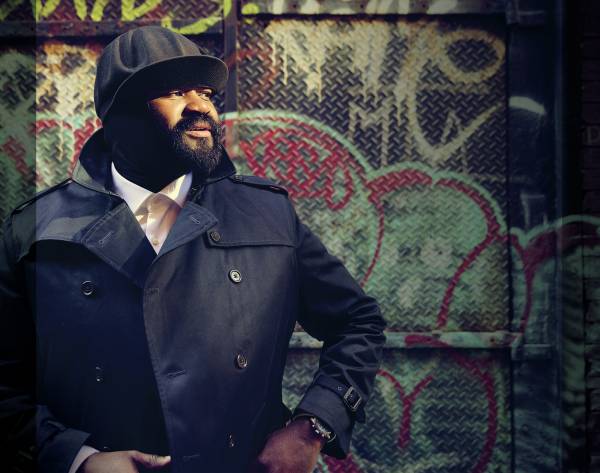The Basement, September 28
8.5/10

Ears are almost too small to accommodate this voice. In fact it seems to transcend the auditory sense altogether, having the sort of solidity you usually associate with objects: with big, physical things. Hell, Donald Trump could build his crazy wall out of Gregory Porter’s voice. And as it fills the room and wraps itself around you like a bear-hug, it seems much too immense to flood from such a trifling aperture as a human mouth.
Yet nothing could be more human, because Porter’s singing also proclaims a heart as big as house. I try to think of another vocalist in any idiom from any era whose singing carries such a tide of magnanimity, and I can’t. Muddy Waters and Omara Portuondo might be contenders. Truly great artists, in other words, and Porter deserves to be discussed in that league. All the time you feel that this baritone of melted dark chocolate is a force for good. He is an artist who is making the world a better place, like John Coltrane, Joan Miro, Stephane Grappelli or Astor Piazzolla were. If Porter started a religion committed atheists might waver.
Indeed one of the most extraordinary performances was the title track of his new Take Me To the Alley album, with its Christ-like protagonist who wants to bypass the glittering surface of the society he visits, and embrace those who are afflicted, lonely and lost. This was a much more expansive version than the recorded one, underpinned by hypnotic bass from Jahmal Nichols and Emanuel Harrold’s sparse, dramatic drumming. After Tivon Pennicott’s keening tenor saxophone solo Porter offered up some light, wordless falsetto lines that were almost beautiful enough to make peace break out in Syria. If the poor sods could hear them over the bombs.
Pianist Chip Crawford tore up Musical Genocide and Harrold’s snappy, hyperactive drumming featured on Work Song. A particular highlight was what is now a Porter classic: the hugely compelling and super agitated 1960 What?, with an explosive solo from Pennicott.